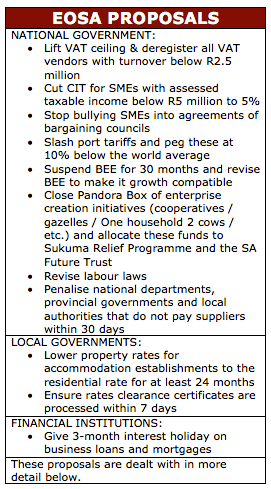Johannes Wessels (@johannesEOSA1)
A tumult about a shampoo advertisement diverted attention from the biggest economic decline under the ANC government to date. A quarterly GDP figure that confirmed the country is plunging into poverty got less attention than a Clicks advertisement. The deteriorating economy will entrench the country in the bottom half of the Economic Complexity Index (ECI), making it less and less attractive as a destiny for both skills and capital.

Splitting “frizzy and dull” hairs from “fine and flat”, however, is apparently for South Africans far more important than worrying about an additional three million unemployed or thousands of businesses pushed into the abyss of loss and debt. Reading Figure 1 (ECI data) reminds of the typical good-news, bad-news joke: the bad news is that SA has slipped from the top third of countries to the middle third. The good news is that this ranking is far better than where the country is heading for. The ECI, developed by Ricardo Hausmann of Harvard and Cesar Hidalgo of MIT, measures the productive capabilities of large economic systems, whether cities, regions, or countries and is based on the knowledge accumulated in a population that gives expression to the diversity and complexity of economic activities.
Almost simultaneously with the DA’s embrace of non-racialism as a pillar of their redress strategy that will not use race as a yardstick to address inequality, the 2020 Q2 GDP demolition figure was released. The throttling of the economy by the government’s lockdown strategy made far less ripples than what TREsemmé claims to smoothen out in frizzy hair.
The commentariat treated the DA like TREsemme
It was not only the Twitterati that underplayed the economic news: the same sentiments dominated in serious opinion pieces and radio and TV talk shows. And the commentariat effectively placed the DA in the same box as TREsemmé:
- Carol Paton, editor at large of Business Live, reckons race will matter forever and lamented the DA’s policy removal of race-based redress “since that will affirm suspicions that the DA is a party whose real agenda is to defend white privilege by denying that such privilege exists at all”.
- Stephen Grootes, radio presenter and Maverick columnist, echoed that “firm evidence and the lived experience of South Africans” indicate whites are rich and blacks are poor.

A Coalition of the Offended encompassing inter alia Julius Malema, the Daily Maverick, Justice Malala and Twitters’ @BiancavanWyk16 emerged: all deeply shocked and emotionally wounded, found Clicks’ sacking of an executive and suspension of selling TREsemmé insufficient.
Some called for “attacks” on Clicks stores and the malls that provide rental space for Clicks. Others demanded a sort of #BlackHairMatters kneeling, some were just happy to find something to be unhappy about and some considered the actions of others in the coalition either overboard or underwhelming.
Whilst one can understand that the EFF, the ANC and a plethora of beneficiaries or wannabe-beneficiaries of BEE, are obsessed with affirmative action, expropriation without compensation and preferential procurement mechanisms enabling hiked prices, it remains amazing that leading commentators such as Paton and Grootes ignore the hard evidence that race is not the best proxy for measuring inequality and that the application of race fails to target those really at the bottom of the pit.
Way back, Census 2011 already provided evidence that education is a far more reliable marker.






